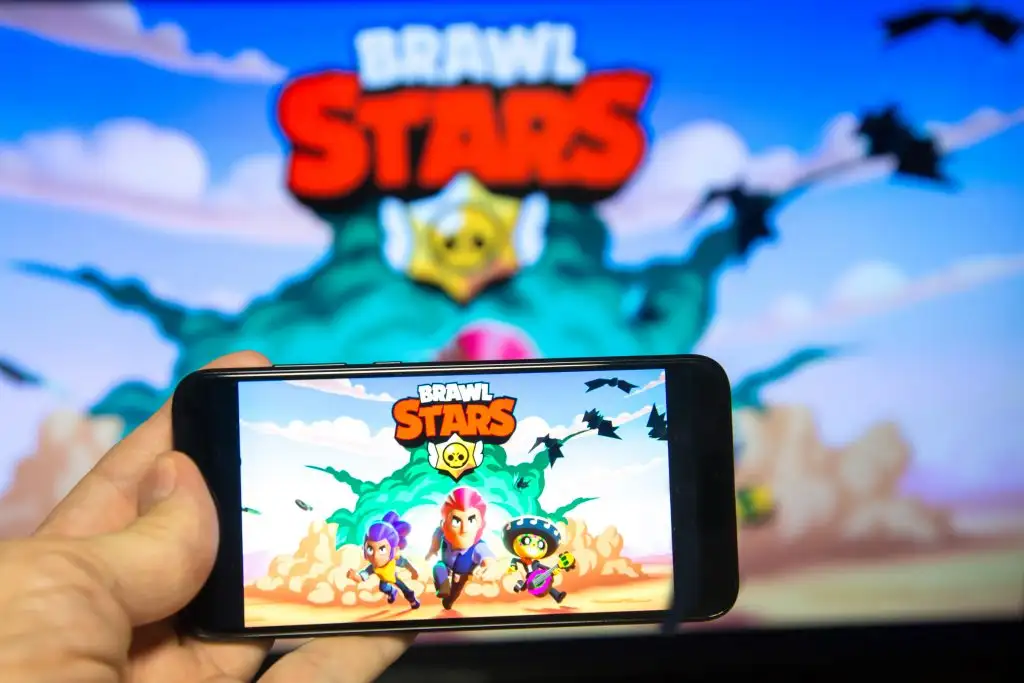Takeaway
The mobile gaming industry has evolved into a multi-billion dollar ecosystem, with companies leveraging innovative technologies, data analytics, and user engagement strategies to dominate app stores. This article delves into the strategies employed by leading mobile game companies, highlighting real-world examples, complex data, and the importance of quality titles in achieving success.
The mobile gaming sector has witnessed exponential growth over the past decade, with revenues projected to reach $173 billion by 2021, according to Newzoo’s Global Games Market Report (Newzoo, 2021). This growth is driven by the increasing penetration of smartphones, improved internet connectivity, and a shift in consumer behavior towards mobile entertainment. As a result, mobile game companies are not only competing for market share but also striving to deliver high-quality gaming experiences that captivate users and foster long-term engagement.
The Importance of Quality Titles
Quality titles are the cornerstone of success in the mobile gaming industry. Companies that prioritize the development of engaging, visually appealing, and technically sound games are more likely to achieve higher download rates and user retention. According to a study by GameAnalytics, games with a 4.5-star rating or higher on app stores see a 50% increase in downloads compared to lower-rated titles (GameAnalytics, 2020). This statistic underscores the critical role that quality plays in attracting and retaining players.
Case Study: Supercell
Supercell, the Finnish mobile game developer behind hits like Clash of Clans and Brawl Stars, exemplifies the importance of quality in mobile gaming. The company adopts a unique development model, allowing small teams to work autonomously on individual projects. This approach fosters creativity and innovation, resulting in high-quality games that resonate with players. For instance, Clash of Clans generated over $1 billion in revenue within its first year of launch, demonstrating the financial viability of prioritizing quality (Supercell, 2013).

Data-Driven Development
In addition to focusing on quality, mobile game companies are increasingly leveraging data analytics to inform their development processes. By analyzing player behavior, companies can identify trends, preferences, and pain points, allowing them to make data-driven decisions that enhance the gaming experience. A report by Statista indicates that 70% of mobile game developers utilize analytics tools to track user engagement and retention metrics (Statista, 2021).
Example: Zynga
Zynga, known for its social games like Words With Friends and FarmVille, employs a robust analytics framework to optimize its titles. The company utilizes A/B testing to evaluate different game mechanics, monetization strategies, and user interface designs. This iterative approach enables Zynga to refine its games continuously, resulting in improved user satisfaction and increased revenue. In 2020, Zynga reported a 49% year-over-year increase in revenue, largely attributed to its data-driven development strategy (Zynga, 2020).
User Engagement Strategies
Mobile game companies are also focusing on user engagement strategies to build loyal player bases. Engaging players through social features, regular updates, and community-building initiatives can significantly enhance retention rates. According to a report by App Annie, games with social features see a 30% increase in user retention compared to those without (App Annie, 2021).
Example: Epic Games
Epic Games, the developer of Fortnite, has successfully implemented user engagement strategies that have transformed the game into a cultural phenomenon. The company regularly introduces new content, limited-time events, and collaborations with popular franchises, keeping the player base engaged and excited. In 2020, Fortnite generated over $1.8 billion in revenue, showcasing the effectiveness of its engagement strategies (Epic Games, 2020).
The Role of Monetization Models
Monetization models play a crucial role in the success of mobile game companies. The most common models include in-app purchases, advertisements, and subscription services. According to a report by Sensor Tower, in-app purchases accounted for 79% of mobile game revenue in 2020, highlighting the dominance of this monetization strategy (Sensor Tower, 2021).
Example: King
King, the developer of Candy Crush Saga, has mastered the art of in-app purchases. The game offers players the option to buy extra lives, boosters, and other enhancements, creating a steady revenue stream. In 2020, King reported $2.1 billion in revenue, with a significant portion derived from in-app purchases (King, 2020). This success illustrates the potential of well-implemented monetization strategies in driving profitability.

Candy Crush thrives on in-app purchases, ensuring high profits.
Emerging Technologies and Trends
The mobile gaming landscape is continually evolving, with emerging technologies such as augmented reality (AR), virtual reality (VR), and cloud gaming reshaping the industry. Companies that embrace these technologies can create immersive experiences that attract new players and retain existing ones. A report by PwC predicts that the AR and VR gaming market will reach $1.5 billion by 2025, indicating significant growth potential (PwC, 2021).
Example: Niantic
Niantic, the developer of Pokémon GO, has successfully integrated AR technology into its gameplay, creating a unique and engaging experience for players. The game’s innovative use of AR has led to over 400 million downloads and generated more than $3 billion in revenue since its launch in 2016 (Niantic, 2020). This success demonstrates the potential of emerging technologies in enhancing mobile gaming experiences.
Conclusion
In conclusion, mobile game companies that prioritize quality titles, leverage data analytics, implement effective user engagement strategies, and adopt innovative monetization models are well-positioned to dominate the app store landscape. The success stories of companies like Supercell, Zynga, Epic Games, King, and Niantic illustrate the importance of these factors in achieving sustained growth and profitability in the competitive mobile gaming market. As the industry continues to evolve, staying ahead of emerging trends and technologies will be crucial for companies seeking to maintain their competitive edge.
Key takeaways include the significance of quality in game development, the role of data-driven decision-making, the impact of user engagement strategies, the effectiveness of monetization models, and the potential of emerging technologies. By focusing on these areas, mobile game companies can create compelling gaming experiences that resonate with players and drive long-term success.
References:
– Newzoo. (2021). Global Games Market Report.
– GameAnalytics. (2020). Mobile Game Analytics Report.
– Statista. (2021). Mobile Game Developer Analytics Usage.
– Zynga. (2020). Annual Report.
– App Annie. (2021). Mobile Gaming Engagement Report.
– Epic Games. (2020). Fortnite Revenue Report.
– Sensor Tower. (2021). Mobile Game Revenue Report.
– King. (2020). Annual Revenue Report.
– PwC. (2021). AR and VR Gaming Market Forecast.
– Niantic. (2020). Pokémon GO Revenue Report.

